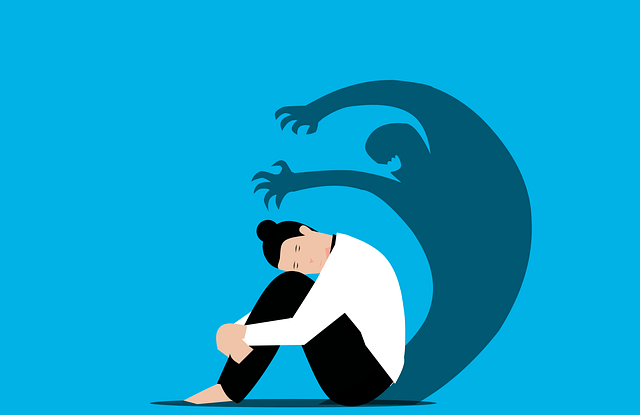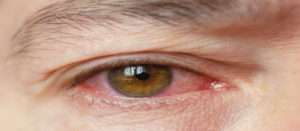Mental health is one of the most pressing concerns affecting adults, teenagers, and children in the United States today. People with mental health conditions may be in your home, neighborhood, your children’s school, a co-worker, or a random person sitting next to you on the subway. With this, we have to understand that mental health is a very important aspect of our health because as the World Health Organization has mentioned – “there is no health without mental health”.
However, due to the taboo associated with mental illness and mental health as a whole, only half of those affected or even less of it receive treatment. As individuals, we should never forget that treated mental conditions can result in higher medical bills, poor academic and employment performance, fewer career opportunities, and a higher risk of suicide.
What is Mental Health?
Mental health includes our emotional, psychological, and social well-being. It has an impact on our thoughts, feelings, and behaviors that can also influence how we cope with stress, our interaction with others, and our decision-making. As important as it sounds, mental health is important in all stages of a person’s life from the moment we were born up to maturity.
Please take note that according to the Centers for Disease Control and Prevention (CDC) and the National Institute of Mental Health (NIMH) (under the National Institutes of Health), poor mental health and mental illness are not the same things, despite the fact that the phrases are commonly used interchangeably. Without being diagnosed with a mental disorder, a person might have poor mental health. A person with a mental illness can also go through phases of physical, mental, and social well-being.
If you are experiencing mental health red flags, your thinking, mood, and behavior may have changed over the course of your life, from childhood to adolescence and into adulthood. Many variables have a role in mental health, including but not limited to the following:
- Genes and brain chemistry as examples of biological factors
- Trauma or abuse as examples of life events
- Mental health problems that run in the family
Why Is Mental Health Important?
According to the CDC, both mental and physical health are necessary aspects of overall well-being. Depression, for example, raises the risk of a number of physical health issues, especially long-term diseases like diabetes, heart disease, and stroke. In the same way, the presence of serious diseases might raise the risk of mental illness.
Signs of Poor Mental Health
Here are some of the signs of poor mental health in the early stage of life:
- Struggling with concentration
- Being prone to distraction
- Being worried about anything
- Having trouble making judgments
- Lack of interest in day-to-day activities
- Up and down mood
- Feeling overwhelmed
- fatigue and a lack of energy
- Sleeping more or less
- Eating disorders
- Avoiding social activities and talking less
- More talking or rapid talking, bouncing between themes and ideas
- Have trouble controlling your emotions
- Impatience and short temperateness
- Being violent
Mental Health Wellness: Care and Treatment
It’s essential to look after yourself in order to get the most out of life. Every once in a while we should be mindful of our mental health during pandemic. Here are some easy strategies to take care of your mental health. Making little improvements to your lifestyle doesn’t have to be expensive or time-consuming. This advice is applicable to anybody.
- Don’t hesitate to seek help, assistance, or advice when you need it. We’re all fatigued or stressed at times by how we feel or when problems occur. Ask for help if circumstances are too difficult for you and you don’t feel you can handle it.
- Discuss with someone your feelings. Talking about your feelings might help you maintain excellent mental health and cope with difficult situations. Remember that opening up about how you feel doesn’t mean you are weak, it is just another way of keeping ourselves especially our well-being healthy.
- Eat healthy and nutritious food. There are significant correlations between what we eat and how we feel. Caffeine and sugar, for example, can have an instant impact. However, eating can have a long-term impact on your mental health. Your brain, like the rest of your body’s organs, needs a variety of nutrients to keep healthy and work properly.
- Stay connected with family and friends because strong relations and support can help you in dealing with life’s pressures. Friends and family have the ability to make you feel included and cared for. They might provide a different perspective than what’s going on within your thoughts. They can help you stay active, grounded, and tackle real difficulties.
- It is important to your mental health to change scenery or pacing so take a breather. It may be a short break from cleaning the apartment, a half-hour tea break at work, or a weekend spent discovering new places. Remember that this part is necessary to handle stress and other unwanted noise we hear within ourselves. In this way, through these short break opportunities, we get to understand and know more about who we are.
Always keep in mind that a self-check is not bad after all, it is essential in making sure that our mental health is well taken care of. With this, we’ve gathered a couple of things to note to maintain positive mental health according to MentalHealth.Gov, a website under the Department of Health and Human Services (HHS):
- If you require expert assistance, you should do so.
- Making connections with other people
- Keeping an optimistic attitude
- Increasing your physical activity
- Getting adequate rest
- Developing coping skills
If your mental health progresses as a mental illness, make sure to seek professional help. According to the CDC, there are different types of mental illnesses or disorders that can affect people, sometimes this happens unexpectedly especially when a particular incident triggers it.
Mental illnesses can be recurrent or persistent over a short period of time or maybe longer. This shows that mental illness has distinct starts and endings. To know more about the different kinds of mental illnesses, you can check out here.










